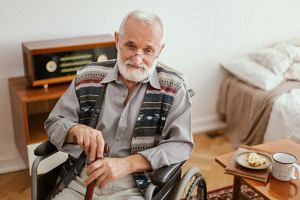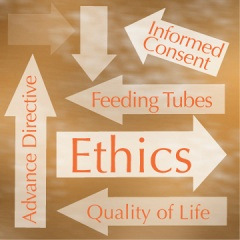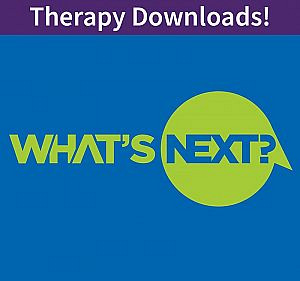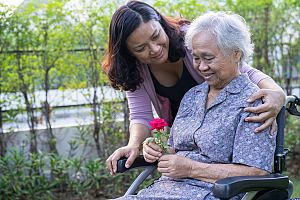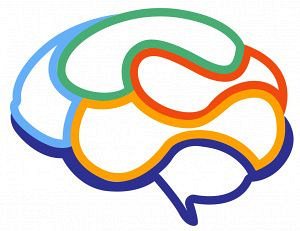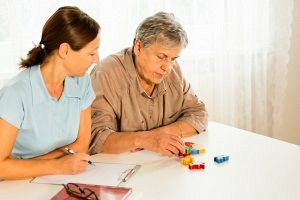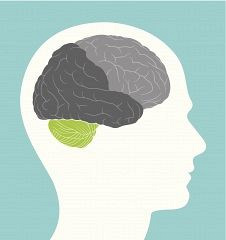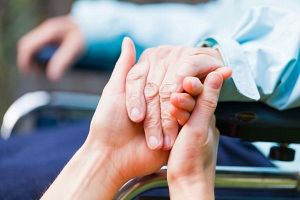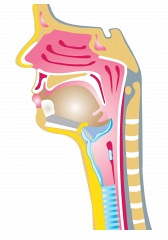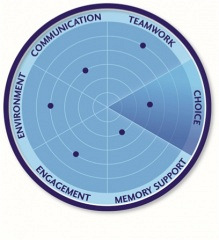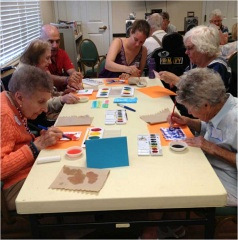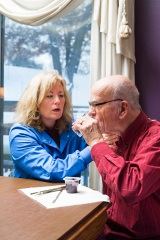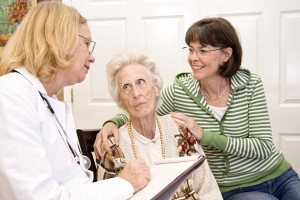"How to look at an ethical problem in terms of autonomy, beneficence, and nonmaleficence was most helpful. It was easy to listen to and was straightforward. The presenter was very knowledgeable and enthusiastic about subject matter." R.C. (Jul. 2025)
"The hemlick discussions were most beneficial. It gave me a better understanding of ethics in hospital setting." C.C. (Jul. 2025)
"Speaker was very knowledgeable and provided real life scenarios. Individual ethics consults pointing the way to more system policy changes and reviewing Mr. Z's case." E.D. (Apr. 2025)
"I liked the real life case study. Information on ethics committee organization and how they review cases." D.V. (Apr. 2025)
"Everything was beneficial. Updated info regarding challenging situations." L.H. (Mar. 2025)
"Four Box Analysis was a beneficial topic. I liked the historical data, and case study." S.S. (Mar. 2025)
"SLPs on the ethics team was a helpful discussion. The information was clear and concise." D.B. (Feb. 2025)
"Different views on being present during a traumatic event and feeling as though you have to watch without helping. Amanda is incredible and offers different points of view on controversial topics that make clinicians better critical thinkers." K.L. (Feb. 2025)
"The presenter did a good job of addressing several things that needed to be considered in various ethical scenarios and the importance of pt autonomy. I liked her comment about we need to rethink how to provide care and not think of it as withholding care." J.B. (Dec. 2024)
"The presenter brought up a lot of solid and interesting points from a medical, caregiver, and dysphagia perspective that I will consider moving forward. I've always felt that the Heimlich is similar to CPR, but I appreciated the breakdown she gave us with all of the other points as well. I will be using this information to teach my team of therapists the importance of patient autonomy, respecting their beliefs and decisions, and that there are ways to document decisions made that may not be our primary recommendations but still would hold up should we get audited by the Ethics committee or get summoned to court." A.K. (Dec. 2024)
"This is the first ethics course (and I've taken many) that has taken a true deep dive into a relevant issue and provided sound research and facts from an Ethics Committee standpoint. I truly appreciated this course and felt it was very beneficial to me. Thank you!" A.K. (Dec. 2024)
"I loved getting to hear more about the inner workings of an ethics committee, as I have not had prior experience working with one and do think I may have taken on some of the stereotypes and found it intimidating before this course. I also loved discussions on the thought process and informed consent - I think it's most helpful learning about discussions where the answer is not black or white (such as with ethics or many other areas within dysphagia). I liked the background info and how we were walked through the process with a specific case." K.M. (Dec. 2024)
"It was beneficial to discuss providing comfort at the end of life, when the patient has opted out of lifesaving measures. Very helpful! The presenter was engaging and passionate about her experiences." S.N. (Dec. 2024)
"Presenter is a gifted speaker, very informed, and very organized in her presentation. I liked the case study concerning the Heimlich maneuver." K.F. (Dec. 2024)
"Discussing the importance of including the patient's perspectives even when it feels "uncomfortable" from the SLP's point of view was helpful." S.A. (Dec. 2024)
"Helpful discussion on how the ethics committee functions, and also this particular committee's decision about the topic in question. Excellent speaker, very knowledgeable about this topic." S.S. (Dec. 2024)
"Beneficial review of ethics team and available consults. Great speaker and interesting topic." M.B. (Dec. 2024)
"I liked understanding how an ethical team works and listening to how the input of patient, family, and professionals works." S.B. (Dec. 2024)
"I appreciated the multifaceted opinions on this controversial subject and the development of an active plan supporting pts wishes and reducing staff and resident trauma. This speaker was great, and I felt that she chose appropriate times to answer questions that did not interrupt the flow of the talk." D.L. (Dec. 2024)
"The case study was helpful. I liked the presenter's experiences with different medical settings." E.M. (Dec. 2024)
"I liked the alternatives to deal with the ethical process with dementia patients." S.M. (Dec. 2024)
"The dysphagia case study was beneficial and I liked that the speaker was enthusiastic." D.S. (Nov. 2024)
"The discussion about what CAN be done for a patient who refuses life-saving intervention was beneficial. The presenter’s overall vibe was very open-minded and very non-judgmental throughout the presentation of various viewpoints regarding end of life decisions and patients rights regarding such decisions." S.D. (Nov. 2024)
"A helpful topic was being open to presenting dilemmas to an ethics board in order to get a team approach/analysis. I liked the case study!" K.W. (Oct. 2024)
"Amanda Warren is an excellent speaker." S.R. (Oct. 2024)
"All the information was beneficial. The speaker was excellent, I would listen to all of her presentations." K.G. (Oct. 2024)
"Excellent overview of ethics and the benefit of SLPs being part of the ethics committee. Very engaging speaker." M.C. (Sep. 2024)
"Easy going and intelligent presenter." R.C. (Sep. 2024)
"I have a better understanding now of the role of the ethics committee. I enjoyed the true scenario presented regarding Mr. Z." H.S. (Sep. 2024)
"The most beneficial discussion in this course was the presenter's ability to tie in her own career situations of the case study with the topic to make it more relatable to the viewer. The presenter discussed the final outcome of the case study in detail." A.M. (Sep. 2024)
"Very engaging and sincere presenter with an extraordinarily complex topic. I thought I'd seen it all in my 24 years in practice, but it was a real pleasure to be challenged to change my viewpoint through this course." C.W. (Sep. 2024)
"The idea of Heimlich as a resuscitation was beneficial. I liked the course format." B.P. (Sep. 2024)
"I found the entire topic very interesting and thought-provoking. The presenter was just wonderful." L.R. (Sep. 2024)
"The specific principles used in an ethics committee's process and how this relates to the Heimlich. The presentation was very clear and well organized." H.K. (Aug. 2024)
"The various viewpoints that are impacted by our decisions as SLPs (e.g., nurse response to potential choking). I liked the topic!" S.K. (Jul. 2024)
"The discussion about Mr. Z was very good and poses a great example of challenging issues and the "push-pull" in advocating for Pt rights. It was an excellent discussion, bringing in so many perspectives to consider. Amanda's presentation style was clear, comprehensive, and insightful. She didn't talk too fast :)." A.H. (Jul. 2024)
"How an Ethics committee works - the different factors they consider, the interviews they conduct, and the way they come to a group decision were beneficial to discuss. I liked the presenter! She was very easy to listen to and I liked how she described the information in an easy-to-understand manner." K.R. (May. 2024)
"I liked the committee process." B.M. (May. 2024)
"Ethical decision-making related to not performing a Heimlich per patient/proxy's request. I liked that all ethical aspects were discussed such as patient/family, staff, and bystanders roles and emotions need to be addressed." A.R. (Apr. 2024)
"The discussion of assisting staff to understand it is not that they "do nothing" if a patient opts for DNPH, but to do things differently was beneficial for me. I liked the explanation of ethics committee purpose and processes." K.B. (Mar. 2024)
"Course was quite fascinating and eye-opening. All the different bioethical principles that are discussed in the Ethics Committee were beneficial. How to create a Comfort Care Pathway to support the pt's autonomy and wishes while supporting the staff by reducing their distress. I appreciated how the speaker explained each bioethical principle then applied it, analyzed it in a real case." B.G. (Mar. 2024)
"Amanda Warren is an excellent presenter. She was very easy to listen to, as if she was having a conversation with us instead of a lecture. I would take another course from her." B.G. (Mar. 2024)
"Amanda is such an engaging and knowledgeable presenter. The content was beautifully organized and presented so as to clarify the complexities of ethical situations arising when providing care to patients with decreased cognitive ability with dysphagia." C.W. (Feb. 2024)
"I liked acknowledging that SLPs could be a great contributor to an ethics committee." M.R. (Feb. 2024)
"This is a topic that I've never thought of - so it was interesting to understand the thinking process behind this ethical decision. Very thorough course." J.F. (Dec. 2023)
"The question of whether or not giving the Heimlich should be asked was beneficial. I liked being able to take course at my convenience." R.C. (Dec. 2023)
"The idea of finding other ways to help someone and help others to provide support/comfort without using an intervention. It was a very interesting topic. I worked in these settings for 25 years, and it brought back many memories and situations." J.D. (Dec. 2023)
"The case study was helpful. I liked the course's pace and the questions along the way." S.K. (Dec. 2023)
"Becoming a part of the ethics committee as an SLP. Very relatable, practical examples that could occur within the hospital setting." M.D. (Dec. 2023)
"Details regarding the Heimlich, as well as knowledge regarding an ethical committee's structure, were beneficial. This course was organized & informative." K.P. (Dec. 2023)
"Thoughtful, fascinating topic presented in an engaging way." J.M. (Dec. 2023)
"I liked the case study and course practicality." K.M. (Dec. 2023)
"The speaker was easy to listen to!" A.P. (Dec. 2023)
"I enjoyed the specific scenario provided and how it can apply to many cases. The speaker was very fluid in her knowledge." J.W. (Dec. 2023)
"The case study was beneficial. Thoughtful, analytical, and compassionate." C.S. (Dec. 2023)
"Excellent presentation. This course was well organized, background reviewed, and then the case study presented." J.R. (Nov. 2023)
"The topic on redesigning the care pathway was helpful." D.D. (Nov. 2023)
"I liked the presenter's knowledge and clarity. Discussing the reasons why Heimlich would be added to patient's healthcare choice was beneficial." P.T. (Nov. 2023)
"The bioethical principles considered by an ethics committee and the analysis completed when making an ethical decision were beneficial to discuss. I enjoyed learning about the example case to understand better the principles and all that goes into an ethics committee and their decision." B.M. (Nov. 2023)
"I enjoyed the enthusiasm and knowledge of this presenter! I found the discussion comparing nonmaleficence and beneficence to be the most beneficial because it detailed how to contrast and compare 2 opposing methods of thought. This will help me better explain to a patient/family members why certain decisions are made." B.M. (Nov. 2023)
"I liked the openness of the speaker to address the complexities of DNR and other proxy decisions. Discussing the ethics of practice as related to the Heimlich being performed was beneficial." M.K. (Nov. 2023)
"This case analysis really helped me think about more than one aspect of decision-making." H.H. (Oct. 2023)
"The presenter was very informative and easy to listen to. The issue of letting a person choke if they have decided not to have any medical intervention at that time was interesting." M.M. (Oct. 2023)
"I liked the instructor's use of a real life ethical dilemma. And considerations for forming a hospital ethics committee were helpful." L.G. (Oct. 2023)
"Learning contributions of the SLP to an ethics committee. Great discussion regarding the ethics committee in this type of situation. This course also gave me thoughtful considerations for my own family as well as myself." S.H. (Oct. 2023)
"I liked this case study. And the ease of registration and viewing this course." J.O. (Oct. 2023)
"Discussing the importance of informed consent prior to treatment was beneficial. The case study was very interesting and informative. I liked that the presenter went through all the considerations discussed by the ethics teams in this case." R.P. (Oct. 2023)
"Discussion of the case study was beneficial, looking at different interventions vs aggressive measures. I liked the speaker and the idea of increased role of SLP in ethics committees." E.N. (Sep. 2023)
"I liked this case study. Discussion of pt choice and not our own comfort." R.M. (Sep. 2023)
"Wonderful presenter!" N.M. (Sep. 2023)
"Ethics in relation to dysphagia management. I found Amanda's presentation to be very interesting." L.M. (Aug. 2023)
"Excellent presenter and discussion of actual Ethics Committee decision-making process and examples." B.P. (Jul. 2023)
"The presenter was so thorough! I liked the process of ethics and ethical cases relating to eating/drinking." M.P. (Jul. 2023)
"Fascinating discussion of the case study regarding Heimlich maneuver. I will try to better consider patient and families' thought processes when guiding patients with decisions about care and treatment. I liked the in depth look at a particular case that appeared one way and turned out to have many facets." D.B. (Jun. 2023)
"I liked the case scenario and seeing the process that was used to get to a resolution / plan for this patient." J.W. (Jun. 2023)
"This course was informative and interesting. The discussion about the need for SLPs to be a member of the Ethics committee was beneficial. I liked the content and the way in which it was presented." C.S. (Jun. 2023)
"Seeing the importance the SLP can bring to an ethics committee." K.F. (Jun. 2023)
"This is very helpful to share with other healthcare providers. It was beneficial to discuss that to assist in comfort isn't doing nothing, it's doing something different." A.J. (Jun. 2023)
"Presenter was easy to listen to and relevant to my work setting - acute care hospital. I liked the topic on the importance of having interdisciplinary team members on an Ethics committee - and benefit of SLP participation." L.D. (Jun. 2023)
"The 4 box analysis system was beneficial. I liked the case presentation of Mr. Z." T.S. (Jun. 2023)
"The presenter explained everything well. I liked the discussion of whether or not it is ethical for the Heimlich to be used on a patient who is choking if they have certain orders in place such as DNR." K.A. (May 2023)
"The inner dialogue in clinical ethical decision-making was beneficial. I liked the accessibility of course." E.G. (May 2023)
"The speaker was positive and easy to learn from. I liked the idea that SLPs should be considered as a participant in an ethics committee." K.F. (Apr. 2023)
"I liked this specific example of the circumstances around dysphagia and choking." M.C. (Apr. 2023)
"Great review to use in my clinical practice. I liked the ethical considerations discussed." M.K. (Mar. 2023)
"Consideration of varied principles of ethics in decision making. I liked the online accessibility." C.W. (Mar. 2023)
"I found the whole discussion most beneficial to my daily practice! The presenter was clear, concise, and articulate!" D.H. (Mar. 2023)
"I liked the application and relevance to my daily practice." E.G. (Mar. 2023)
"The consensus and four-box analysis models were beneficial. The case study was very helpful, and all of the information was appreciated!" S.L. (Mar. 2023)
"Evidence-based and useful in my day-to-day practice. The speaker was engaging and expressive and held my attention. What's included in the continuum of care and what could be declined was a useful perspective. Time-wise, she gave appropriate time to the topics she covered." R.B. (Mar. 2023)
"The case study was a real-life scenario that clinicians may encounter. Discussion on personal beliefs vs. patient rights was beneficial." B.A. (Mar. 2023)
"Great topic related to ethics for SLPs. The presenter was engaging, relatable, and interesting. I liked the case presentation and processes by which a plan was developed. Also, the statement that comfort care doesn’t mean doing nothing, it just means doing something different…..this is excellent for education!" B.K. (Mar. 2023)
"Relevant to my daily practice." E.G. (Mar. 2023)
"I found the entire presentation to be excellent. The presenter was knowledgeable, articulate, and presented the course in a very organized way." W.F. (Feb. 2023)
"She was an excellent speaker. I liked the entire presentation." G.B. (Feb. 2023)
"I liked Amanda Warren's positive core values regarding a very difficult topic. And team with varied beliefs coming to a consensus." M.B. (Feb. 2023)
"Enjoyed the case scenario. Liked how it pertained to a specific ST case." J.W. (Jan. 2023)
"Thought provoking and relevant information." A.P. (Jan. 2023)
"Discussion of ethics committee in general and explanation re: why DNPH could be an option for patients was beneficial." K.H. (Jan. 2023)
"This course was wonderful and educational. The topics of dementia in the aging population and how it will affect patients making the decision of wanting or not wanting the Heimlich was interesting." T.R. (Jan. 2023)
"The presentation was excellent. Good layout and discussion of ethics." S.M. (Jan. 2023)
"The case study was well chosen and discussed. I liked the ease of course access." R.J. (Jan. 2023)
"The presenter was really easy to listen to and provided a nice balance between clinical experience and evidence. I have never worked in a facility where SLPs were part of the ethical committee. This was very eye-opening to the benefits." E.L. (Dec. 2022)
"All topics were beneficial in achieving a broader understanding. I liked the course organization - explanations to enhance understanding and learning - integration of questions & answers as the presentation was presented." D.D. (Dec. 2022)
"Beneficence vs. Maleficence. The instructor was well prepared, well spoken, and knowledgeable." A.G. (Dec. 2022)
"The speaker was very easy to listen to. The idea of considering the patient's wishes and plans of care over that of our traditional training to prolong life." J.P. (Dec. 2022)
"Learning function and purpose of an ethics committee in an acute hospital setting. Questions answered as they came up - kept it relevant to the topic being discussed in that moment." A.F. (Dec. 2022)
"Speaker was very good - liked discussion of ethics amongst dysphagia population." K.D. (Dec. 2022)
"The case study was very helpful for application of the principles." K.C. (Dec. 2022)
"Excellent presenter. Good explanations. Learning how ethics committees work." R.S. (Dec. 2022)
"I really enjoyed the case study. It was incredibly thought-provoking and interesting to break down the decision-making that goes into a comfort-based approach and why. This is definitely becoming a more relevant topic of discussion as the population ages and the prevalence of dementia and dysphagia increases. The framework behind the decision-making process was well broken down and clearly applied to the case study." A.N. (Dec. 2022)
"The case study that allowed me to see the process of the ethics that the committee put into practice and the ongoing discussion with questions throughout the course were all incredible." E.C. (Nov. 2022)
"I liked the speaker's enthusiasm and knowledge regarding the subject." L.H. (Nov. 2022)
"Speaker was very knowledgeable and clear. I liked the way ethics principles were used to guide the decision in the case presentation." C.G. (Nov. 2022)
"Addressing staff or bystander concerns during choking incident when intervention is prevented was really helpful. This course had good pace of information and anecdotal stories." S.M. (Nov. 2022)
"Everything covered was beneficial! I really needed to hear all of this! The instructor was impeccable! I will seek more courses from her! Thanks! Love her style, format, content, and delivery!" K.K. (Nov. 2022)
"The Ethics Consultation process was very informative. I appreciated the opportunity for team members to consider their personal reactions/beliefs specific to this case study patient. The framework for identifying key questions and concerns seems very helpful in terms of gleaning the most information possible for decision-making. I loved the split-screen format! Being able to view the presenter and the slides simultaneously really personalized the instruction and made me feel part of a class!!" J.K. (Nov. 2022)
"The case discussion of Mr Z was a perfect example of how to navigate through a difficult situation. I initially had a visceral reaction to the dilemma of providing treatment or not to provide. The instructor did a masterful job of laying out the process that led to the final decision. Wonderful approach! Excellent instructor. Very knowledgeable and approachable. She has a passion for this area." L.H. (Nov. 2022)
"The graphics and handouts were good." M.M. (Nov. 2022)
"Good example of a tricky scenario - and advocating for the role of SLPs on ethics committees or to be involved with relevant consults." E.R. (Nov. 2022)
"It was very informative." C.J. (Nov. 2022)
"Excellent presentation on a very difficult topic. Learning that the HCP can make the decision to include refusing the Heimlich as part of the DNR, DNI, DNH." I.H. (Nov. 2022)
"I enjoyed this entire course! Excellent presentation!" J.S. (Oct. 2022)
"I liked the simplistic presentation." T.T. (Oct. 2022)
"Excellent presenter!" A.C. (Oct. 2022)
"I liked the entire course and the way it was presented." B.B. (Oct. 2022)
"I like the speaker's knowledge and the real life examples provided. And learning more about how an Ethics Committee functions." S.B. (Oct. 2022)
"The complex consideration of comfort care, emergency care, and consistency in care for DNR, DNI, DNPH were good." T.E. (Sept. 2022)
"I thought the case study was the most helpful because I could apply it to a typical work situation. I liked the examples and information about the Ethics committee and the typical things they look into in the hospital setting." J.S. (Sept. 2022)
"The presenter is super interesting and easy to listen to. You can hear her passion and that makes it easier to watch and listen." A.S. (Sept. 2022)
"EXCELLENT COURSE! I will be referring my speech friends and colleagues." M.B. (Sept. 2022)
"The explanation of the process of how the committee came to their conclusion regarding the case study was beneficial. I liked the video of presenter along with slides. Made it feel more like an in-person CEU course." L.G. (Sept. 2022)
"Easy to follow and quick. I liked the discussion of ethics regarding the heimlich maneuver." A.S. (Aug. 2022)
"Specific examples of an ethics case - I liked the education and counseling with patients and family." L.M. (Aug. 2022)
"This benefited my practice by: 1. Bioethical principals to be considered by ethics teams. 2. The benefits of having an SLP on the ethics committee. 3. How to assure staff that they are still providing care in comfort care situations." V.M. (Aug. 2022)
"I liked the ability to go back and repeat parts of the lecture. Working at my own pace - flexibility it provides." V.M. (Aug. 2022)
"I appreciated the case history highlighting a very real scenario that I could find myself in while working in acute care and making me think about how consequences of dysphagia may impact the other staff caring for a patient. I felt like the presenter was very knowledgeable and passionate about her involvement in Ethics committee/discussion and overall palliative care/end-of-life input especially regarding dysphagia and that made me want to soak up everything she said and keep listening." E.E. (July 2022)
"I would not have chosen it based on title, but it exceeded my expectations for frank discussion of structure ethical decision making." M.K. (July 2022)
"Great discussion of the role of an ethics committee. I liked all of the course content." A.J. (June 2022)
"All of it was fantastic information – the breakdown of the Ethics Committee and the analysis in which this case study was reviewed. The organization and explanation of the information as well as the analysis and implementation in relation to pt care was good." W.R. (June 2022)
"It was all very informative. Course was easy to understand and follow." D.P. (May 2022)
"Course was easy to follow. I liked how it integrated ethics into multiple environments with case examples." T.M. (May 2022)
"The course was concise. I liked how it went over a specific pt example and what the family wanted." C.L. (May 2022)
"I liked the presenter. Very interesting case involving the ethical decision around using the heimlich." M.C. (May 2022)
"I liked how the case example really illustrated the process of ethical decision making in an ethics consult scenario." J.O. (Apr. 2022)
"The presenter was excellent, concise, and provided an important tool many SLPs may need to incorporate into their practice, especially in LTC facilities." T.W. (Mar. 2022)
"Very informative. I liked the discussion regarding educating staff members on how to proceed with allowing a patient to aspirate with intake." G.G. (Mar. 2022)
"I liked the incorporation of the SLP on an ethics committee, and the functional case study." J.B. (Mar. 2022)
"It explored a unique topic which does come up and haven't seen this type of topic discussed before." K.D. (Jan. 2022)
